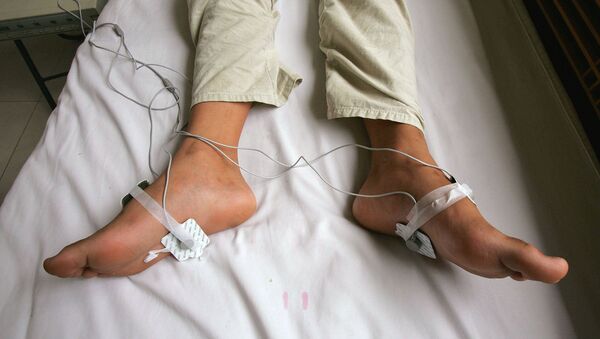An investigation by the Norwegian daily Verdens Gang claims that electroconvulsive therapy (ECT) was administered 166 times over the three-year period without the patients' prior consent. The figures used in the report were gathered from Norway's health authorities from between 2014 and 2016.
The treatment, formerly known as electroshock therapy, had previously shown its efficiency against certain types of psychiatric or psychotic illnesses, including major depressive disorder, mania and catatonia, should they reach life-threatening proportions.
Earlier this year, Norway's Civil Ombudsman reacted strongly against the use of ECT to treat a patient that had not given his or her consent, the report reminded.
"There are two aspects to this that are particularly disconcerting. One is that the numbers are uncertain. The other is that patients are given several treatments over time, based on emergency necessity. It is notable in itself that a treatment justified by an emergency situation can last for days and weeks," Helga Ervik, who heads the Civil Ombudsman's preventative unit against torture, told Verdens Gang.
According to Ervik, the state of emergency is associated with an acute situation, where one is in mortal danger. A treatment given in such situation is therefore presumed to have an immediate effect and should hardly be repeated, let alone this frequently.
Several hospitals told Verdens Gang that the decision to give ECT treatment can be made with consultation with relatives, should the patient be incapable of giving consent themselves, a practice that Ervik found unacceptable.
"A relative can never give consent to an invasive procedure of this kind. The requirement for consent can only be fulfilled by the individual in question giving it," Ervik told VG, citing "a lack of clarity, a lot of uncertainty and possibly also misunderstandings regarding what the next of kind may do."
Meanwhile, ECT may prove to have irreversible consequences, as proven by the case of 55-year-old Steinar Hestad, whose treatment in 2011 appeared to have erased his memories from between 1985 and 2011 as an unexpected side-effect. Although his case was not an emergency, he cannot remember giving his consent due to the memory loss.
"It took many years before I fully understood the extent of the damage. I lost my sense of belonging and my identity, I do not know where I am. I do not feel I belong anywhere, because I have no connection to things, it's all a painful emptiness. To have a future, you must know your past," Steinar Hestad said.




